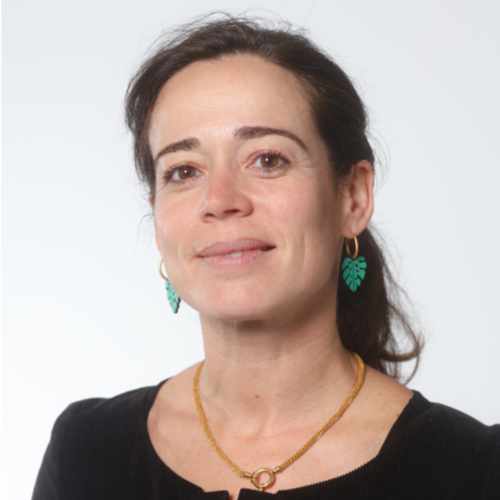Dr Mariana Fazenda is one of the inventors of the company called ENOUGH; a B2B ingredient company which creates ABUNDA, a mycoprotein rich in protein and fibre, with 9 essential amino acids, zinc and iron, making it highly nutritious. More than a decade has passed since Mariana was a PhD student at the University of Strathclyde, where she carried out research into fermentation processes alongside colleagues Craig Johnston and Professor Brian McNeil.
With a focus on sustainability and avoidance of waste, the team aimed to take ‘expired’ wheat which was no longer suitable for human consumption, and extract every last ounce of potential benefit. In what Mariana describes as; 'A relatively simple, continuous fermentation process', a particular blend of microorganisms, fungus and yeast were set to work on the expired wheat. They found they were able to grow a source of alternative protein, similar to Quorn, which was capable of being used in human foodstuffs. Lower quality residue from the wheat biomass also proved to be an excellent source of animal feed and the gases produced through the fermentation process could be recovered to use as fuel.
Following this discovery, Mariana worked with Strathclyde Inspire’s IP & Commercialisation team to ensure that the intellectual property was protected. A patent was applied for and granted, and this provided the basis for commercial development of their process through a spin-out company – ENOUGH (formerly 3FBIO). Mariana said:
As researchers, our excitement at the time was about creating something with impact, something that could have a benefit to humans by upcycling waste products. Working night and day in bioprocessing, the joint challenge was to develop seamless transitions between the different fermentation processes and to raise funds to continue the research. We certainly were not thinking of any financial implications.
The team was focused on food sustainability, against a backdrop of a rising world population, intensive agriculture practices and biodiversity loss. The goal of ENOUGH is to be able to produce one million tonnes of sustainable mycoprotein by 2032, which is equivalent to one million fewer cows or 150 million fewer chickens to provide sustainable food to the same number of people – while generating five million tonnes less in CO2 emissions in the process.
The team points out that it’s massively more efficient to ferment protein than to grow animals. ENOUGH’s process uses 93% less water, 97% less feed and releases 97% less CO2, to produce each kilo of protein, compared with animal-based alternatives.
While working at the University of Cambridge, fostering collaborations between academia and business within the Plant Science community, Mariana found out that an IP agreement deal had been negotiated between the University of Strathclyde and ENOUGH, and the financial windfall that resulted was unexpected but welcomed. As Mariana stresses, the entrepreneurship for her was all about the excitement of problem solving; thinking how her research could make a difference. She is now working at a pan-european organisation called EIT Food, which helped contribute to the growth of ENOUGH.
2022 was a big year for ENOUGH, which is now at a stage to mass-produce the product to a commercial market already familiar with similar plant-based sources. The company has recently invested 40 million Euros in a production facility based in Holland, which the team say wouldn’t have happened if not for the amazingly supportive environment at the University of Strathclyde and the IP & Commercialisation team at Strathclyde Inspire.
The company also cites support from Scottish Enterprise, Zero-Waste Scotland, Innovate UK, and investors, describing the whole journey as benefitting greatly from the breadth of the 'Strathclyde Entrepreneurship ecosystem'.
Catherine Breslin of Strathclyde Inspire said:
Not every invention can or will change the world but, by providing a supportive environment in which ideas can flourish and obtain crucial funding, Strathclyde Inspire has been able to play its part.

